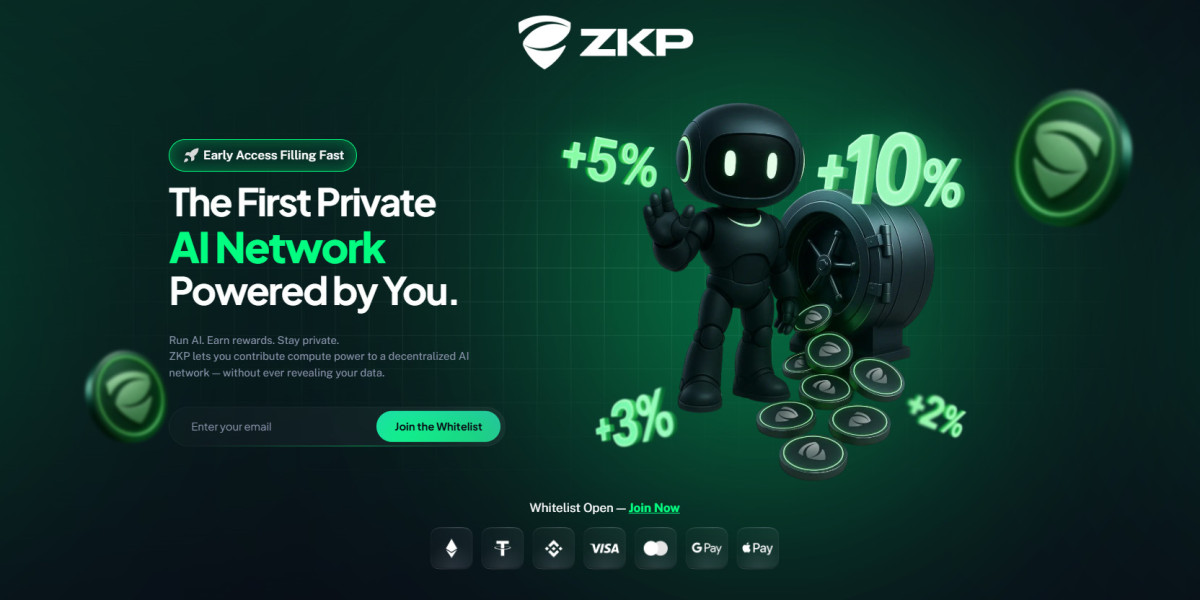The modern internet has reached a turning point. Data drives everything we do, from AI decision-making to financial transactions and cross-border digital services. Yet the very systems designed to enhance our lives have introduced new risks: exposure, surveillance, data breaches, and the erosion of user trust.
As businesses, governments, and individuals grow more aware of the vulnerabilities in today’s digital infrastructure, a new expectation has emerged. Privacy is no longer a luxury or a feature. It is a fundamental requirement.
This shift has set the stage for a critical transformation powered by one technology: zero-knowledge proofs.
ZKP Company is advancing this transformation by building an infrastructure that enables privacy-first computation and verification at real-world scale. The goal is simple but ambitious: restore integrity to a digital environment that can no longer afford blind trust.
The Digital World’s Trust Deficit
Users no longer accept the idea that personal data must be exposed to verify who they are.
Organizations no longer want to hand over sensitive information just to collaborate.
AI developers cannot freely share datasets without risking compliance issues or intellectual property loss.
Blockchains face a constant battle between transparency and privacy.
Across industries, one conclusion is clear: current systems ask for too much data and offer too little protection.
Zero-knowledge proofs turn this model upside down. They enable verification without exposure and collaboration without revealing underlying information. This is not an improvement to existing systems—it is a redesign of how trust is established online.
How ZKP Company Is Building the Infrastructure for Encrypted Computation
While many discuss the potential of zero-knowledge proofs, few are bringing them to a level usable by enterprises, AI platforms, and decentralized systems. ZKP Company is solving the biggest barriers that kept ZK technology stuck in the theoretical stage.
1. Proof Generation Built for Real Workloads
Traditional ZK systems are slow and resource-heavy. ZKP Company is developing a distributed proof network that breaks down complex tasks, generates proofs in parallel, and delivers results at speeds suitable for commercial use.
2. Verification Without Unnecessary Data Exposure
The platform enables systems to confirm identities, validate computations, or check compliance while keeping all sensitive information encrypted. This creates a frictionless environment where privacy is preserved by default.
3. A Scalable Foundation for Privacy-First Applications
From financial services to AI pipelines, the infrastructure is designed to support large-scale operations without sacrificing confidentiality. Companies can adopt zero-knowledge workflows without rebuilding their existing technology stacks.
The Industries That Will Be Transformed
Zero-knowledge computation opens new possibilities across sectors where data privacy, accuracy, and verifiable results are essential.
Artificial Intelligence
Models can be trained, evaluated, and deployed without ever accessing or revealing sensitive data sources.
Financial Technology
Compliance processes such as AML and KYC can be proven mathematically without exposing private details.
Blockchain Networks
Smart contracts gain privacy and security without sacrificing verifiability or decentralization.
Enterprise Collaboration
Organizations can share insights and run analytics across departments or partners while keeping raw data locked away.
Identity and Authentication
Users can prove who they are without disclosing everything about themselves, creating a more secure digital identity ecosystem.
A New Standard for Digital Trust
The future of the internet will not rely on collecting more data. It will rely on proving what is necessary while protecting what is private. Zero-knowledge proofs are enabling that shift, and ZKP Company is building the infrastructure required to bring this capability to global scale.
As digital systems grow more connected and more intelligent, privacy-aware verification will become the backbone of trustworthy computation. This is the beginning of a new standard—one where privacy and transparency finally coexist, and where digital integrity becomes the expectation rather than the exception.








